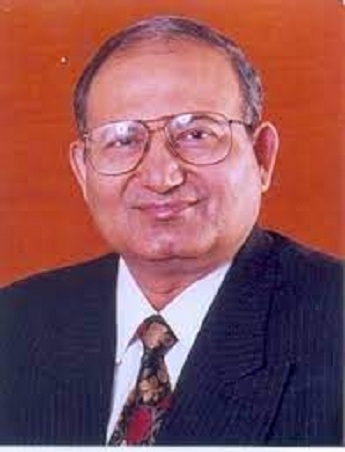The remarkable man of India’s agriculture
| Date :03-Oct-2021 |

By Vijay Phanshikar :

DR. Rajendra Singh Paroda has been working on the ground, close to the ground, all his life, in a very successful effort to give Indian agriculture a scientific substance of rare merit. So signal have been all his contributions that this man has not become a living legend just in Indian agriculture but also an iconic name in world agricultural sciences -- so much so that many institutions such as Gene Banks in several countries have been named after him. Even at an advanced age of 79 years, Dr. Rajendra Singh Paroda is still working round the clock to fulfill his dream -- of taking the benefit of science to the smallest and the farthest farmer tucked away in forests and mountains across India. Long back, he stopped the honours he garnered around the world, which also included as many as 18 Doctors of Science degrees from various globally recognised universities across countries.
The most prestigious Normal Borlaug Award and the Padma Bhushan also came his way. But the highest point of his career came when Dr. Raj (as his friends call him) Paroda received the Dr. M.S. Swaminathan Award. ‘The Swaminathan Award is the best I can think of, and be thankful for’, he is reported to have said. Unfortunately, Dr. Paroda’s story is only rarely told in Indian homes and schools and colleges. We really do not know that he is one man to be credited with creation of a massive network of institutions of research an d ideation in agricultural science, including the iconic Trust for Advancemen t of Agricultural Science (TAAS) which he founded out of his conviction. But then, the list of the institutions Dr. Paroda founded is so long that a 1,000-page book would only partially be able to explain what one man can do in his own lifetime in agricultural science. Born in Ajmer in 1942, Dr. Raj Paroda is still dreaming big, working on his vision, guiding young generations of scientists -- undisturbed by public adulation but still away from public glare. It was Dr. Raj Paroda who first thought of the idea, and created the world’s largest and most modern National Gene Bank in New Delhi (that has more than 250,000 valuable germ plasm accessions of different crops).
He also launched the iconic National Agricultural Science Centre Complex, built on Pusa Campus, the International Crop Research Institute for Semi-Arid Tropics, for example. Most importantly, the Agriculture Research Institute of Kazakhstan named its Gene Bank after Dr. Rajendra Singh Paroda. Ministries of Agriculture of Armenia and Vietnam also honoured Dr. Paroda with Gold Medals for his contribution.
Dr Paroda is also credited with formation of the Global Forum on Agricultural Research in Food and Agriculture Organisation, Rome and served it as Founder President from 1988-2001. He established Asia Pacific Association of Agricultural Research Institutions, at FAO, Bangkok; and served as its Executive Secretary for over 20 years. He also became the first Indian to serve as Chairman of ICRISAT Board of Trustees. This remarkable man has also been associated with several global organisations in Australia, other Commonwealth countries, and has been a leading figure in several international organisations whose list can be very long. All these contributions have catapulted him onto the global stage on which he walks like a colossus. But all these form only a fraction of what this remarkable self-effacing man has done in his lifetime. During 1994-2001, Dr. Paroda spearheaded the modernisation programme of the National Agricultural Research System when he was Director General, Indian Council of Agricultural Research and Secretary, Department of Agricultural Research and Education, Government of India. He also led the formation of as many as 30 new national institutions in crops, horticulture, livestock, natural resource management, fisheries, agricultural engineering and social science sectors. He also led the process of designing the prestigious National Agriculture Technology Project to reorient agricultural research, education and extension system of India, for which he successfully negotiated with World Bank for a USD 250 million in 1998. ‘Dr. Paroda’s very name ensured the aid to the project,’ a World Bank official had said then. What a remarkable man!